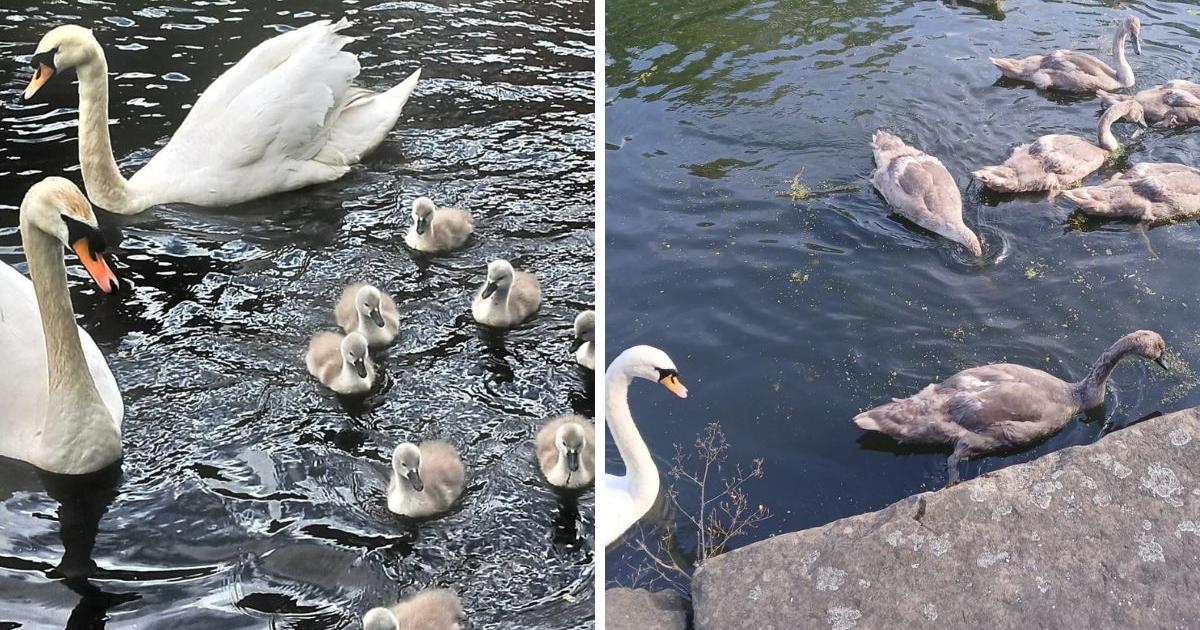Kabir Alam has documented the swans since they nested on the Leeds and Liverpool Canal at Eanam Wharf in March.
During the past few months, he has seen them grow and watched the cygnets as they made their first movements in the water.
He said he has been visiting the swans regularly to feed them, and they are being watched over by another nature lover who lives nearby.
Swans can be found year-round in lakes, slow-moving rivers and canals across Britain. They also nest in open country and busier towns and cities.
Kabir said: “It is wonderful to see this, and I think a lot of people will be surprised how well they have done.
“Last year, out of 10 swans, only one cygnet hatched but did not make it. So, their survival rates are not that good.
“This year we have eight swans who have survived and are looking really good.”
The swans at Leeds and Liverpool Canal at Eanam Wharf pictured earlier in the summer. (Image: Nq/Alam)
Here are images from earlier in the spring and the summer (Image: Nq/Alam) According to the Canal Wildlife River Trust, female swans lay between five and eight large green-brown eggs, one every other day, and incubate them all for just over a month.
Male swans may also incubate the eggs.
Swans are herbivorous, feeding on land and in water, although they may occasionally eat aquatic animals. In water, swans upend or dabble to eat water plants.
The most common swan is the mute swan, so called because they make comparatively little vocal noise while flying.
Mute swans display little fear of humans in Britain, where they have long been domesticated.
Kabir said watching the swans grow has been inspiring.
“It is really lovely to see this,” he said.
“It is wonderful to see passers-by so intrigued by this. Swans have that amazing presence about them, and we have been taken in watching them develop in the sunshine.
“I would ask people who do come and visit to keep a lookout and hopefully we will have more swans in the future.
“Maintaining a connection with greenery and local wildlife should be encouraged.”
Despite widely held beliefs of royal ownership, swans in the UK aren’t actually owned by the monarch.
The crown only has ownership of unclaimed mute swans on select stretches of the River Thames around Windsor Castle.
Swans are, however, like the majority of wild birds in the UK, protected under law and it is illegal to deliberately kill, harm or disturb swans in any way, including damaging nests or eggs.

